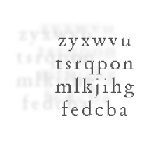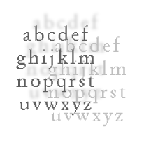No one in my family could figure out where this love of books had come from, and what had given me a craving for words. It was their considered opinion that it happened because I had been a sick child, premature at birth, not even walking until my second birthday. I had asthma and colds more than I didn't. I was badly cross-eyed and would run sideways when I caught adults watching me play. They looked in my direction first when they heard a child fall and were always shaking their heads over my clumsiness.
 But I also scared the hell out of them. To them, I was
emotionally out of control. I lived in the world of feelings; they in the
silent world of work. I wanted to talk; they wanted to do. I said out
loud what everyone had agreed not to notice. I was dangerous to them and
to the place I was to inhabit as a grown woman. They held that my moods
were caused by reading too much, "getting ideas," and "living in a dream
world." They thought it was crazy, unsafe and dead-end. They did not want
to see me disappointed and there was no way to make a living from my
passion for books.
But I also scared the hell out of them. To them, I was
emotionally out of control. I lived in the world of feelings; they in the
silent world of work. I wanted to talk; they wanted to do. I said out
loud what everyone had agreed not to notice. I was dangerous to them and
to the place I was to inhabit as a grown woman. They held that my moods
were caused by reading too much, "getting ideas," and "living in a dream
world." They thought it was crazy, unsafe and dead-end. They did not want
to see me disappointed and there was no way to make a living from my
passion for books.
Back then, my mother did not have abstract concepts like class, but she damn well understood what was possible and what would break my heart. I was her baby, and, proud as she was of my reading and dreaming, she could not afford to encourage a fantasy which would leave me unprepared to face what she knew awaited me. A survivor herself, she meant for me to be one too. Truth is, I was as afraid as my parents were when I tried to seewhere it was leading, They were right; it didn't make any sense for me. I could be the best-read waitress in Roseville, the best-read wife, the best-read biker, the best-read teenage mother.

